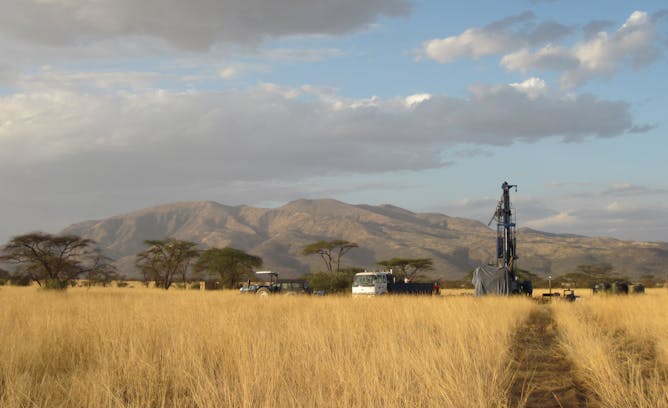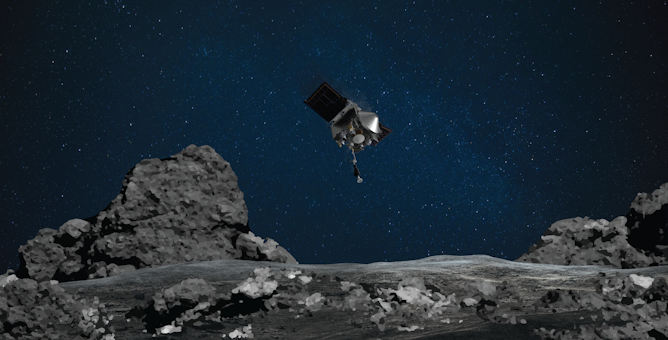|
Anthropologists have long known that environmental conditions influenced the evolution of our Homo sapiens ancestors. But there have been gaps in our understanding because certain periods have a sparse archaeological and fossil record. Today a new study describes a research project in the Rift Valley of Africa that drilled a 450-foot-deep sediment core to get a picture of the environmental factors that influenced how people lived and evolved during a period starting 500,000 years ago.
Also in this week’s science and research news: A space systems engineer provides the back story – and the technical challenges – in NASA’s OSIRIS-REx asteroid mission, and more emerging research around COVID-19, including why men are more susceptible to the disease and how pneumonia vaccines could protect against the worst effects of COVID-19.
|

Drilling 139 meters down to volcanic rock provided scientists with a million-year environmental record.
Human Origins Program, Smithsonian
Richard Potts, Smithsonian Institution
A new environmental record for a prehistoric site in Kenya helped researchers figure out how external conditions influenced which of our ancient ancestors lived there, with what way of life.
|

This artist’s rendering shows OSIRIS-REx spacecraft descending toward asteroid Bennu to collect a sample of the asteroid’s surface.
NASA/Goddard/University of Arizona
Elizabeth Cantwell, University of Arizona
OSIRIS-REx will touch down on asteroid Bennu, collect a sample of the dust and begin its journey back to Earth, where scientists will study it, hoping to learn secrets of the solar system's origin.
|

The COVID-19 new normal might be here for quite some time.
SolStock/E+ via Getty Images
Nükhet Varlik, University of South Carolina
As ready as you are to be done with COVID-19, it's not going anywhere soon. A historian of disease describes how once a pathogen emerges, it's usually here to stay.
|